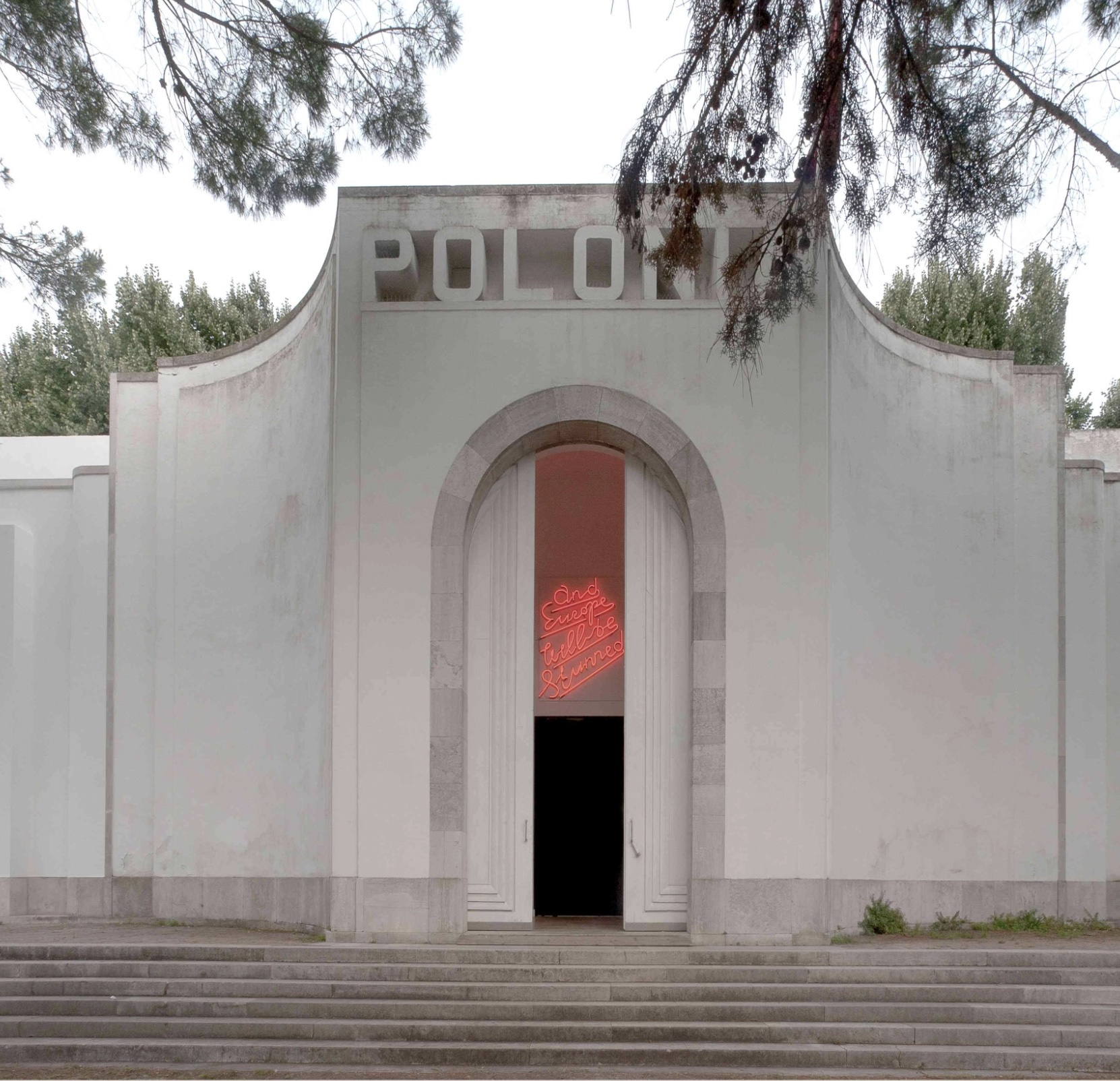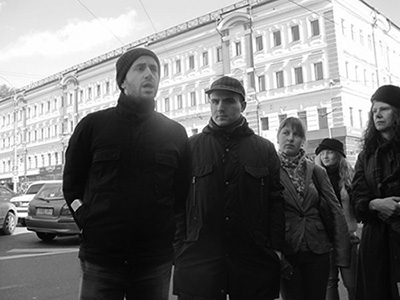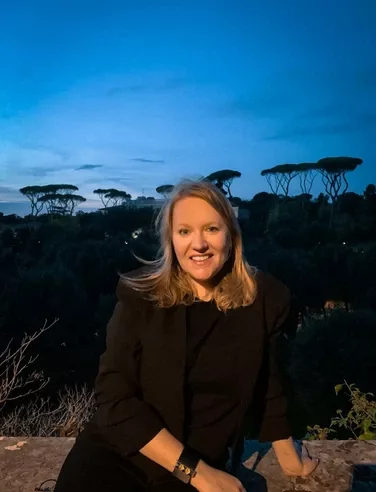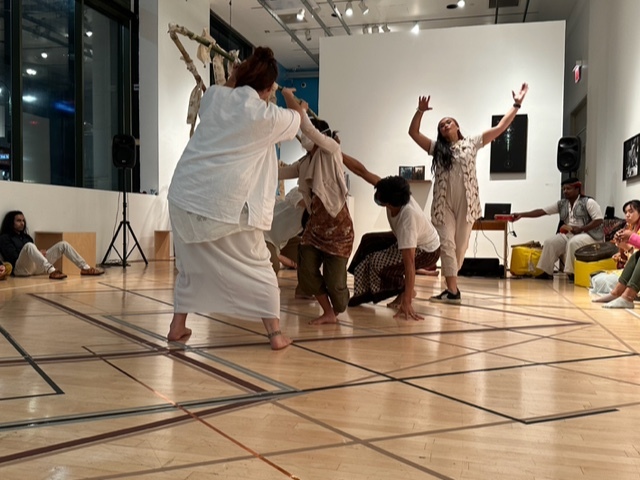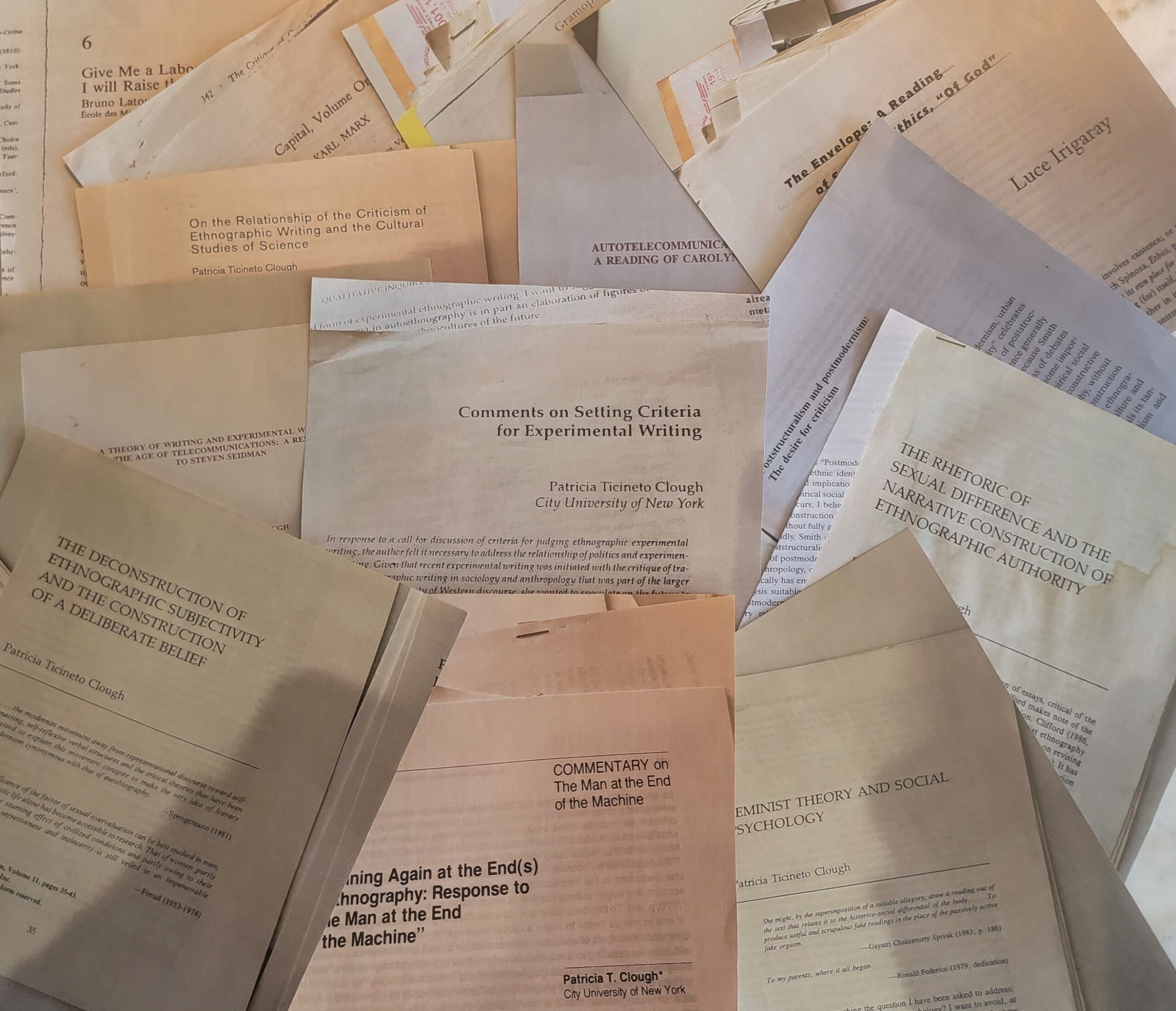Jewish Museums and Contemporary Art: Preservation of Memory or Forging Futurity?
Wed, Oct 26, 2022
2:00 PM–4:00 PM

We will gather in person in the James Gallery and also on Zoom. Register here.
To join via Zoom: https://us02web.zoom.us/j/83885202631
The event zoom link will be emailed to all registered participants.
To attend in person, proof of Covid vaccine or a negative test is required.
This event is part of the discussion seriesYiddishland Pavilion at The James Gallery: Transnationality, Memory and Museology
The discussions will investigate (trans)national representation at the Venice biennale, integration of contemporary art into Jewish museums, and artistic female voices that find alternative ways to be heard.
What is the role of and expectations for Jewish museums in the European context today? The panel will challenge the role of the Jewish museum as a place dedicated solely to the preservation of the memories of Jewish life and culture, especially in the context of European countries whose pre-WW2 communities had been largely devastated and never fully recovered. What are the experiences of the Jewish museum professionals in integrating complex Jewish narratives into the national histories of countries where such museums reside?
In addition to working with the legacies of the two plus millennia of Jewish contribution to Europe, in recent decades, Jewish Museums have also become important sites for presenting and producing contemporary art related to Jewish history and identity. What are the challenges in bringing contemporary art to the Jewish museum today? In what forms contemporary artists can engage with the Jewish museum, beyond just projects that react to, research and activate museum collections? Are contemporary Jewish artists placed in the context of Jewish museums being instrumentalized as “reanimators or resuscitators” or “living proof” of Jewish art and culture’s existence?
In what way can the Jewish museum become an organic site for the production of new Jewish art, knowledge, and culture? What are the strategies for finding a balance between the preservation of memory and forging new future(s)?
Chief Curator of the Core Exhibition at POLIN Museum of the History of Polish Jews Barbara Kirshenblatt-Gimblett, in Warsaw will speak about the museum and its participation in shaping public history narratives. While it is not an art museum, contemporary art projects are an important part of both the Core Exhibition and the temporary exhibitions. Contemporary artists are invited to create new works for exhibitions on such topics as Jewish culinary culture. Existing works are incorporated into exhibitions on such topics as how blood unites and divides us. An entire exhibition is dedicated to the work of one artist, for example, Frank Stella and Wilhelm Sasnal. This talk explores the role of contemporary art at POLIN Museum.
Director of Jewish Museum Frankfurt Mirjam Wenzel will address the mechanisms of the musem collecting and exhibiting as well as encouraging contemporary art productions that are reflecting on Jewish history and culture. In the framework of its preoccupation with diverse contemporary Jewish cultures the museum enables commission of artworks to particular topics as well as artist residencies and aims at empowering younger Jewish artists to take a public stand. Mirjam Wenzel will present contemporary artworks that are either commissioned or presented by the Jewish Museum Frankfurt and expand on the changing exhibition “Revenge: History and Fantasy”, in particular.
Jewish museums can wear many hats, contemporary art is one of them. For example by including art works dealing with Jewish subjects in their exhibitions or by commissioning artists to produce particular projects. What if Jewish museums take it a step further? We don’t know if anything such as Jewish art exists. But if it does, it might go beyond questions of identity (Jewish artist) or content (art work dealing with Jewish subjects). Artist Eduard Freudmann would like to suggest that community and mutual exchange could play a role in that regard and reflect on how Jewish museums could become laboratories for research on the Jewishness of art.
YIDDISHLAND PAVILION is a hybrid online-offline project aimed at tracing and developing Yiddish and Jewish discourse in contemporary artistic practice. Being a fluid and nomadic project that is dispersed between the grounds of the 59th Venice Biennale and the virtual world, Yiddishland Pavilion represents Yiddishland — an imaginary country/land/space/territory and a stateless network connected through the Yiddish language and culture. At the 59th Venice Biennale, Yiddishland Pavilion takes place in a dialogue and collaboration with national pavilions of countries with histories of Yiddish-speaking Jewish migration. Сurated by Maria Veits and Yevgeniy Fiks, Yiddishland Pavilion analyzes the erosion of global political constellations, practises collective remembrance, condemns war and occupation, and documents consequences of migration and politics of exclusion that target “Otherness”.
More information on the Yiddishland Pavilion project can be found here.
Yiddishland Pavilion at the James Gallery is organized by Yevgeniy Fiks and Maria Veits in collaboration with the James Gallery.
Participants
Related Events
Conversation & Performance
And, And, And-Stammering: An Interview
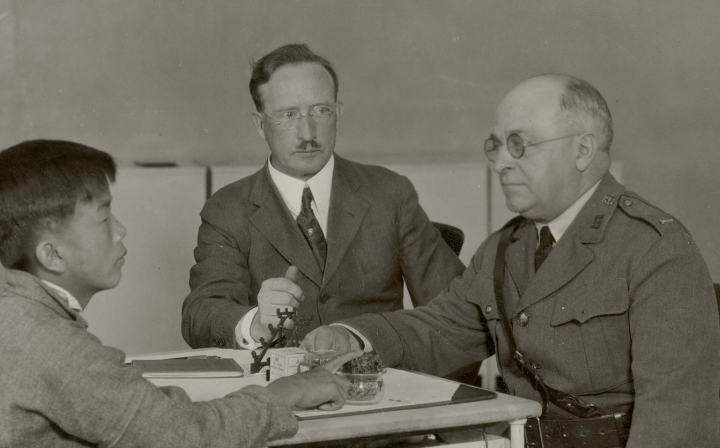
Panel Discussion
Herstories, Uncomfortable Narratives, and Power Asymmetries
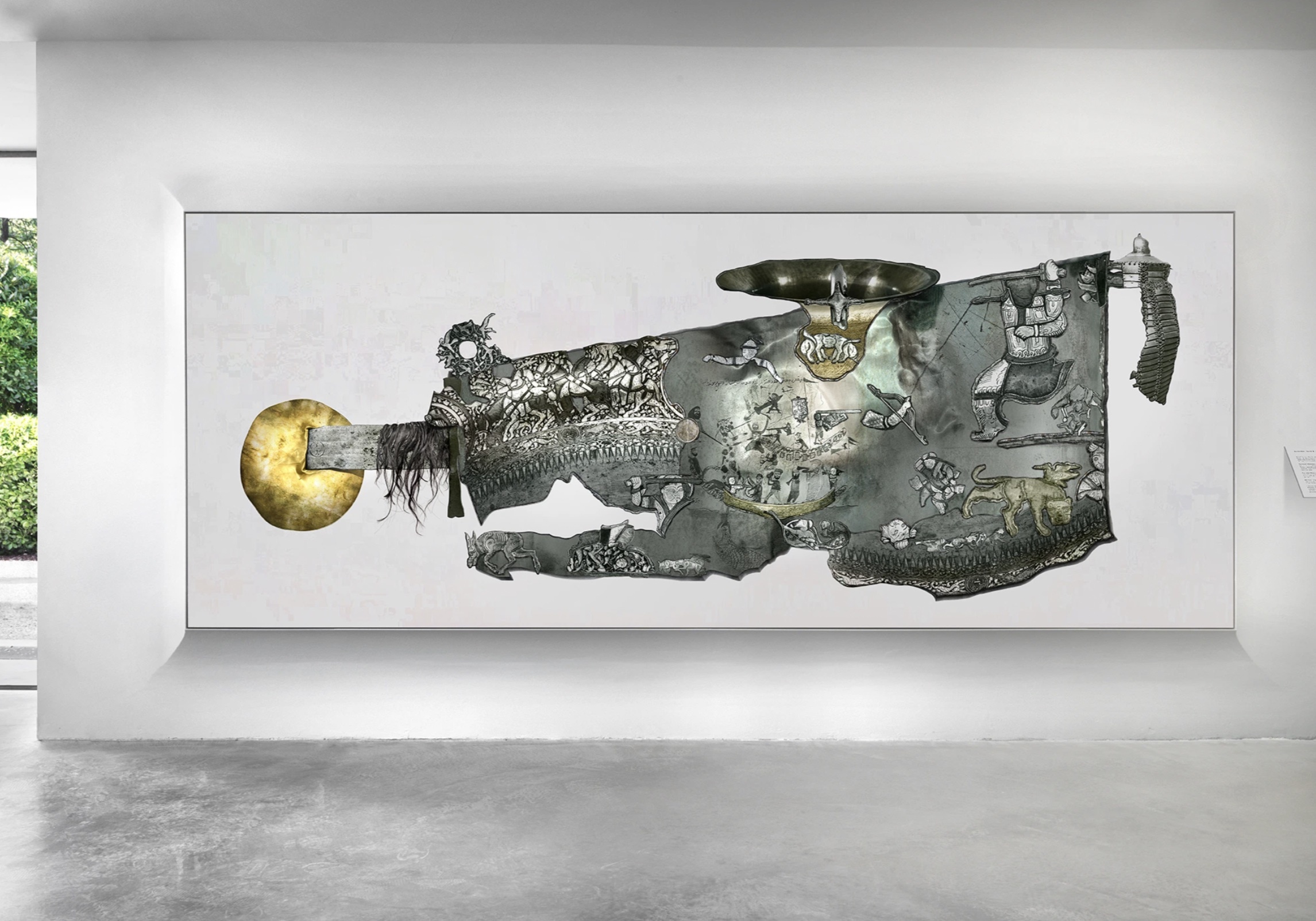
Workshop
Mag Urupod Kita/We Belong To Each Other {{Heartbreak Vanquishing Spells}}
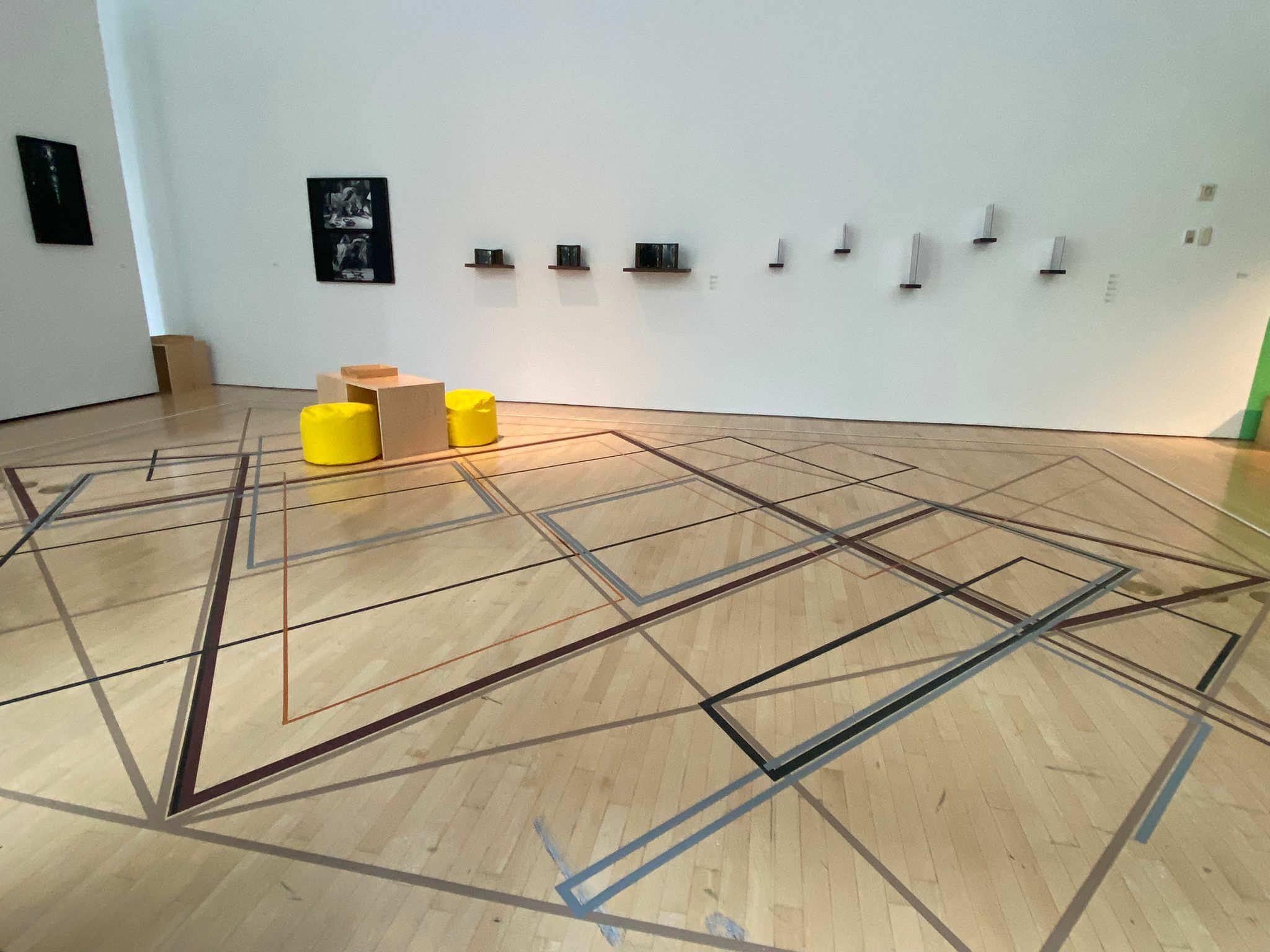
Panel Discussion
Challenging National Divisions: Transnational, Alternative, and “Pavilions-in-pavilions” at the Venice Biennale
